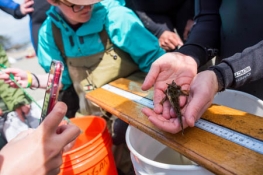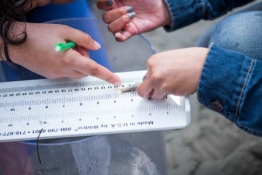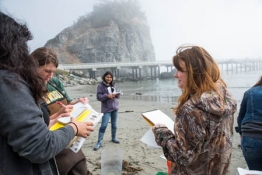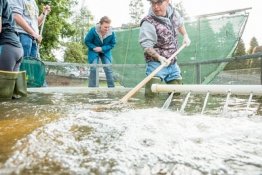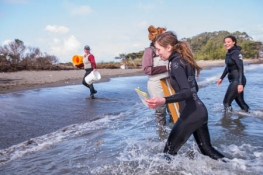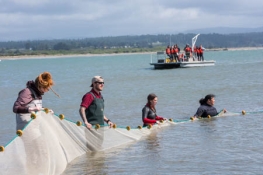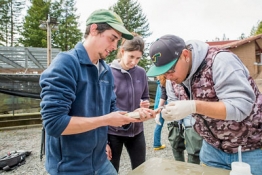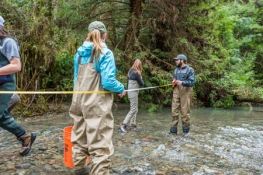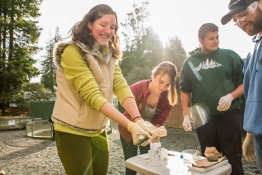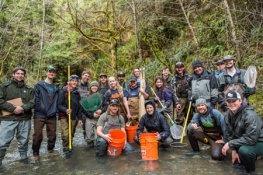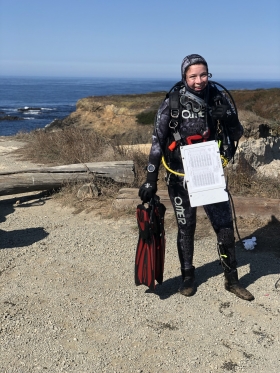Taylor Zenobia
Fish hold incredible cultural, economic, nutritional, and political value. As a student within the fisheries biology program, I have learned that by focusing on fish we have the power to impact our environment, our society, and protect our world for future generations. The faculty, staff, and students within the fisheries biology program hold each other to a high standard that is recognized in the professional fields I have participated in as an undergraduate student. As leaders in our field, I find it incredibly important to bring my personal perspective and experience to the material that I am acquiring and using that to question the origin of these ideas. The faculty within the department has responded to my queries by allowing me the opportunity to collaborate with my peers, specialists in the field, graduate students, and people in other majors. This has resulted in broadening my perspectives and creating new knowledge by coming together with others and incorporating multiple perspectives into paradigm shifts. As a student I have also had the unique opportunity to double minor in Scientific Scuba Diving and Women's Studies. These other curricula have given me the hands-on knowledge of what it's like to be a scientist underwater, counting hundreds of fish as they swim by, and to learn critical theory about how oppression is structured into our society and our experiences. By incorporating all of these knowledge bases I have found myself to be a better scientist overall and a more responsible global citizen. I have grown most as a student and scientific researcher from the unique hands-on opportunities offered by the faculty and supported by the staff at the marine laboratory to conduct independent undergraduate research and present my findings at globally recognized conferences. My current research has focused on the integrated culture of macroalgae with the sustainable production of other trophic level organisms and the implementation of addressing social problems such as gender inequality, environmental classism, and global food insecurity within scientific research. I completed three independent projects and was awarded best student abstract by the United States Aquaculture Society and the World Aquaculture Society in 2019. I was also awarded the best student oral presenter at the Aquaculture America conference in 2020 for my research on reducing the electric energy requirements for land-based macroalgae aquaculture systems. My future career plans include continuing my education in graduate studies at Cal Poly Humboldt; this will entail studying the population dynamics of the Galapagos Ocean Whitefish. I hope to eventually go on to complete a PhD program to help reduce the impacts of food insecurity across the world.

